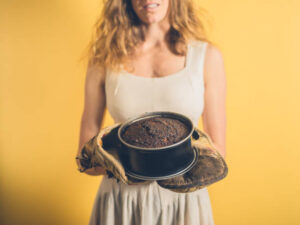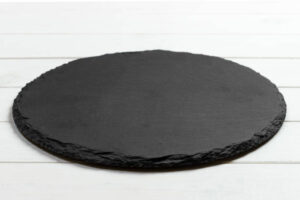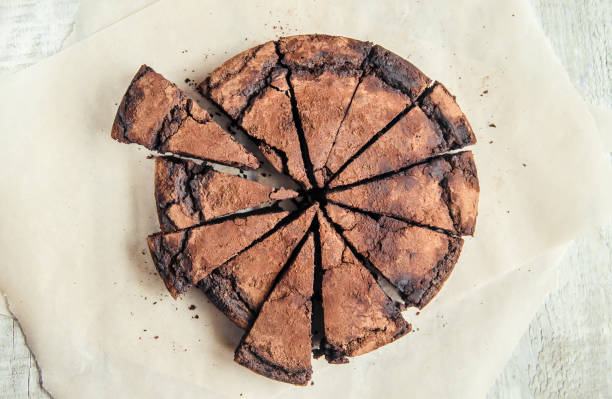Baking a cake can be a delightful and rewarding experience, but it’s not without its challenges. One of the most common pitfalls in cake baking is overbaking. Overbaking can turn a moist and delicious cake into a dry, crumbly disaster. In this article, we will explore the signs of an overbaked cake, the common causes behind it, and how to prevent it from happening.
The Art of Baking: Finding the Perfect Balance
Baking is often referred to as a science, but it’s also an art. Achieving the perfect balance of time and temperature is crucial for baking a cake that’s moist, tender, and full of flavour. Overbaking, on the other hand, can result in a cake that’s dry, tough, and lacking in the desired texture and taste.
Signs of an Overbaked Cake
 (Photo from iStock)
(Photo from iStock)
Before we delve into the causes of overbaking and how to prevent it, let’s first identify the tell-tale signs of an overbaked cake:
- Dry Texture: An overbaked cake will have a dry and crumbly texture. When you take a bite, it may feel as if it’s sucking the moisture out of your mouth.
- Cracked Surface: Overbaked cakes often develop cracks on the surface. These cracks can be subtle or pronounced, depending on the severity of overbaking.
- Darkened Edges: The edges of an overbaked cake tend to become excessively browned or even burnt. This is a clear indication that the cake has spent too much time in the oven.
- Shrunken Appearance: Overbaked cakes may appear slightly shrunken or pulled away from the sides of the pan. This is due to the excessive loss of moisture during baking.
- Lack of Moisture: When you insert a toothpick or cake tester into the center of an overbaked cake, it will come out dry or with a few dry crumbs clinging to it. A properly baked cake should yield moist crumbs.
- Unpleasant Taste: Overbaked cakes can have a bitter or burnt taste due to the caramelization of sugars and Maillard reactions that occur during extended baking.
Common Causes of Overbaking
Understanding the causes of overbaking is essential to prevent it from happening in the first place. Here are some common reasons why cakes get overbaked:
- Incorrect Oven Temperature: Ovens can vary in temperature accuracy. If your oven runs hotter than the set temperature, your cake may cook faster than expected, leading to overbaking. It’s crucial to invest in an oven thermometer to ensure your oven is calibrated correctly.
- Incorrect Baking Time: Following the baking time in a recipe blindly can be a mistake. Factors such as the size and type of cake pan, altitude, and humidity levels in your kitchen can all affect baking times. Always use the suggested time as a guideline and rely on visual and sensory cues to determine when your cake is ready.
- Opening the Oven Door Too Often: Every time you open the oven door while the cake is baking, you allow heat to escape. This can lead to uneven baking and extended baking times. Use the oven light and window to check the progress of your cake instead of opening the door.
- Overmixing the Batter: Overmixing cake batter can lead to an overdeveloped gluten structure, resulting in a tough and dry cake. Mix the batter until just combined to avoid this issue.
- Using the Wrong Pan Size: Using a pan that’s too small can cause the cake to be too thick, leading to uneven baking and overbaking on the outside before the center is fully cooked. Conversely, using a pan that’s too large can result in a cake that bakes too quickly.
- Inaccurate Measuring: Precise measuring of ingredients is crucial in baking. Using too much flour or not enough liquid can result in a dense and dry cake. Always measure ingredients carefully, preferably using a kitchen scale for accuracy.
- Failure to Rotate the Pan: Some ovens have hot spots, meaning certain areas inside the oven are hotter than others. Failure to rotate the cake pan during baking can result in uneven cooking, with some parts of the cake overbaking while others underbake.
How to Prevent Overbaking
 (Photo from iStock)
(Photo from iStock)
Now that you know the signs and causes of overbaking, here are some effective strategies to prevent it:
- Invest in an Oven Thermometer: As mentioned earlier, an oven thermometer is a valuable tool for ensuring your oven’s temperature is accurate. Place the thermometer inside your oven to monitor the actual temperature during baking.
- Use the Right Pan Size: Always use the pan size recommended in your recipe. If you don’t have the specified pan, adjust the baking time accordingly. A smaller pan may require a longer baking time, while a larger pan may need a shorter one.
- Check for Doneness Early: Begin checking for doneness a few minutes before the minimum recommended baking time. Use visual cues such as the cake pulling away from the sides of the pan, a golden-brown top, and a toothpick or cake tester that comes out with a few moist crumbs (but no wet batter) to determine if the cake is done.
- Avoid Overmixing: Mix the cake batter until just combined. Overmixing can lead to a tough and dry cake due to excessive gluten development.
- Reduce Oven Temperature: If you suspect your oven runs hot, consider lowering the temperature by 25°F (about 15°C) and extending the baking time accordingly. This can help prevent overbaking.
- Rotate the Cake Pan: If you know your oven has hot spots, rotate the cake pan 180 degrees halfway through the baking time. This ensures even cooking.
Conclusion
Baking a perfect cake requires practice and attention to detail, but avoiding the common pitfall of overbaking is well worth the effort. By understanding the signs and causes of overbaking and implementing preventive measures, you can consistently create moist, tender, and delicious cakes that will impress your family and friends. And if an overbaked cake does happen to sneak into your kitchen, remember that with a little creativity, it can still be transformed into a delightful dessert. Happy baking!
Reference:
The Bake School
Want to do a meal prep, what are you waiting, go check some amazing ideas for meal prepping, click on the link below:
How to do your meal prepping routine




